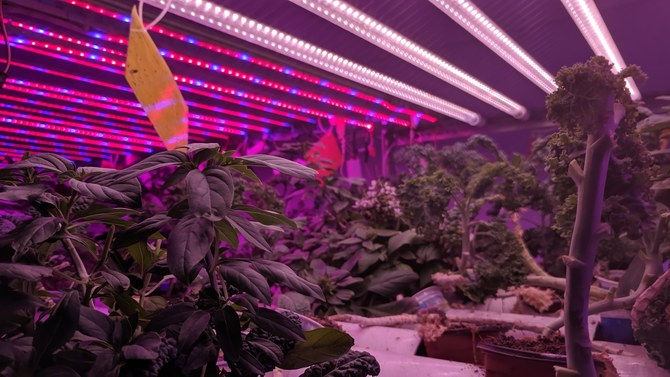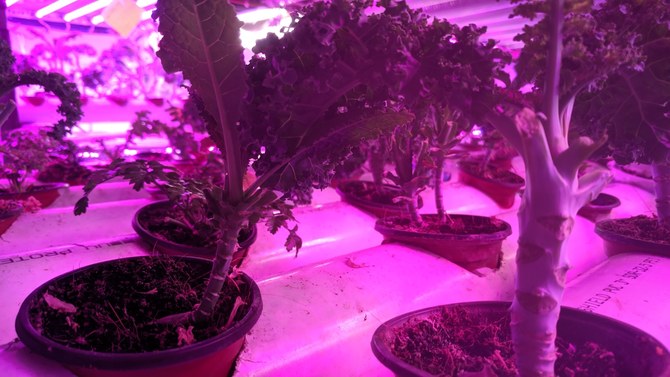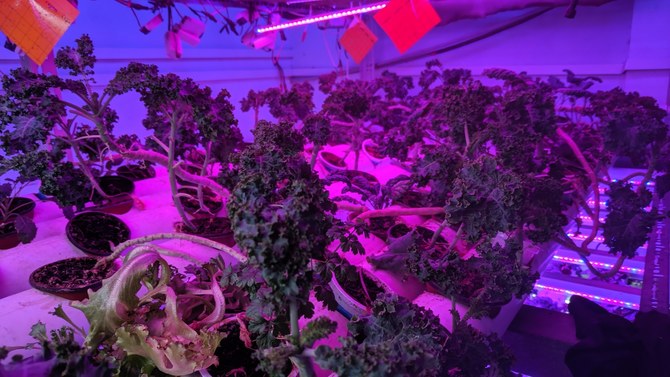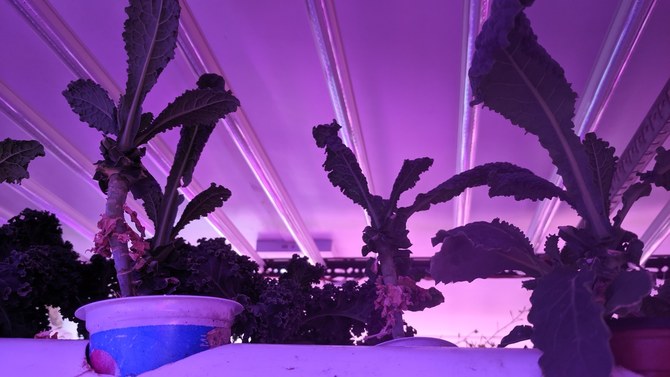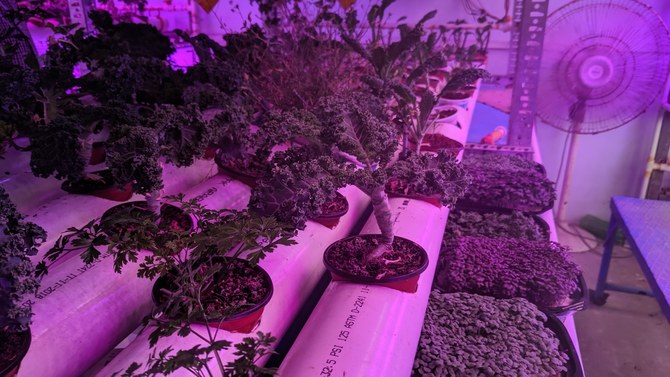KARACHI: In 2006, Sohail Ahmed’s once-booming polyester filament yarn plant closed down due to a worldwide recession, alongside lawlessness and a power crisis at home, in Pakistan’s seaside metropolis of Karachi. Twelve years later, Ahmed has converted the top floor of the old yarn factory into a futuristic farm, with kale, rosemary and dozens of other vegetables growing vertically under the purple glow of LED lights.

Different types of vegetables, mostly non-seasonal, are grown at this vertical farm at the Site Industrial Area of Karachi, where light, humidity and temperature is optimally controlled. September 26, 2019. (AN Photo)
Pakistan’s first urban vertical farm is a commercial venture, with the produce being supplied to some of the city’s finest restaurants and supermarkets. But the use of hydroponics, where plants grow in nutrient solution instead of traditional soil, and where water is continuously recycled, contributes toward eco-friendly practices by using 90 percent less water than field farming, using no pesticides and omitting gas emissions involved in the long transportation routes from rural to urban centers- all leading to the freshest greens in the city.

Farhan Sohail, a process and product development engineer in Pakistan’s first vertical farm, speaks to Arab News in Karachi on September 26, 2019 (AN Photo)
“When our family business shut down in 2006, I started to think about different business models with the help of technology. In 2009, I did a course on environmentally friendly and futuristic plant growing technologies. In the next two years, we set up our flower greenhouses in Karachi and Murree,” Ahmed told Arab News, and added that the success of his greenhouses led him to think of urban agriculture as a serious business model.
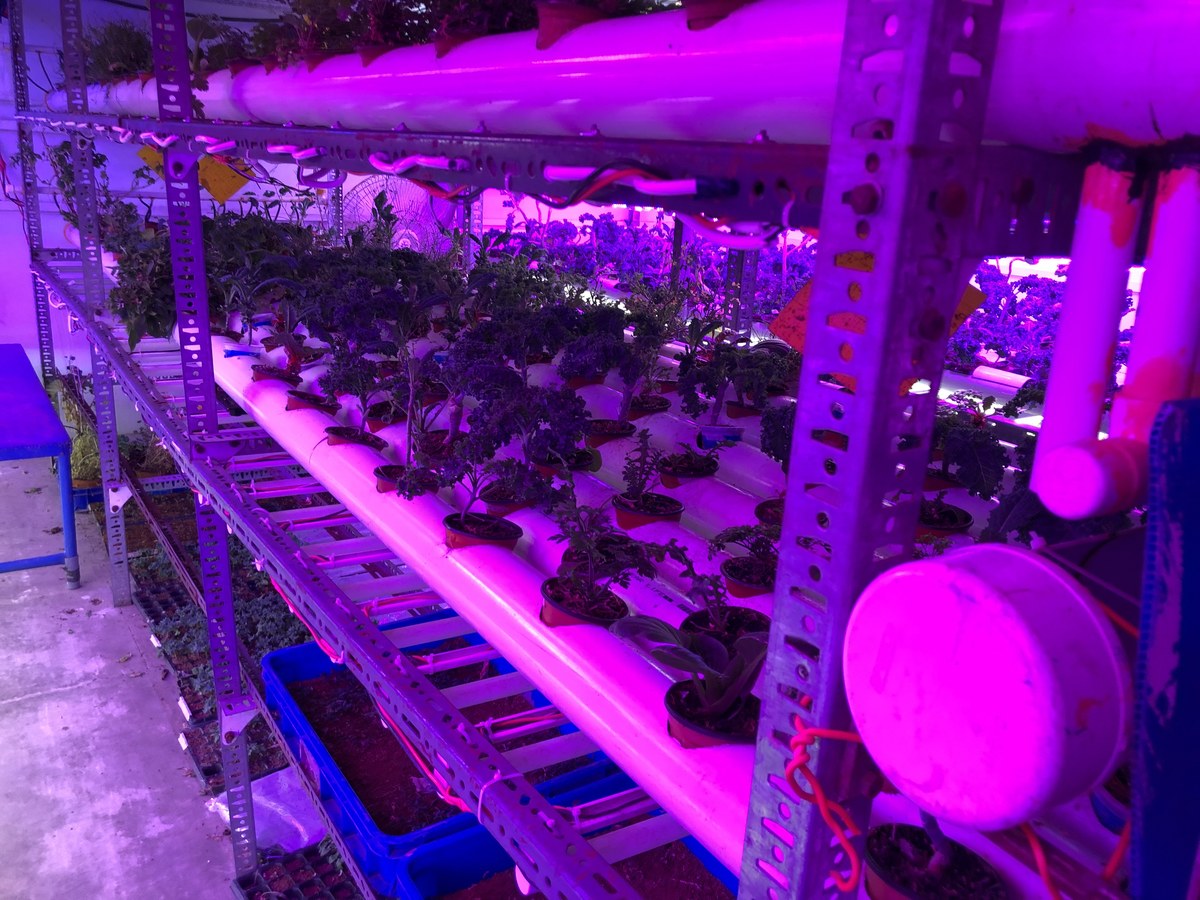
Different types of vegetables, mostly non-seasonal, are grown at this vertical farm at the Site Industrial Area of Karachi, where light, humidity and temperature is optimally controlled. September 26, 2019. (AN Photo)
ReplyReply to allForward
Ahmed and his son, Farhan Sohail, an engineering graduate from the American University, started working on the urban agriculture project in 2016 and by April 2018, their vertical farm had been set up in the 60 ft. room, and already blooming.
Farhan, who largely oversees the project, said around 2,500 plants of kale, cherry tomatoes, pak choi, iceberg lettuce, red swiss chard, rocket, basil, capsicum, jalapenos, microgreens, parsley, celery, oregano, rosemary, thyme, and sage are grown within a cycle of 45 to 60 days from the time of seeding to harvesting.
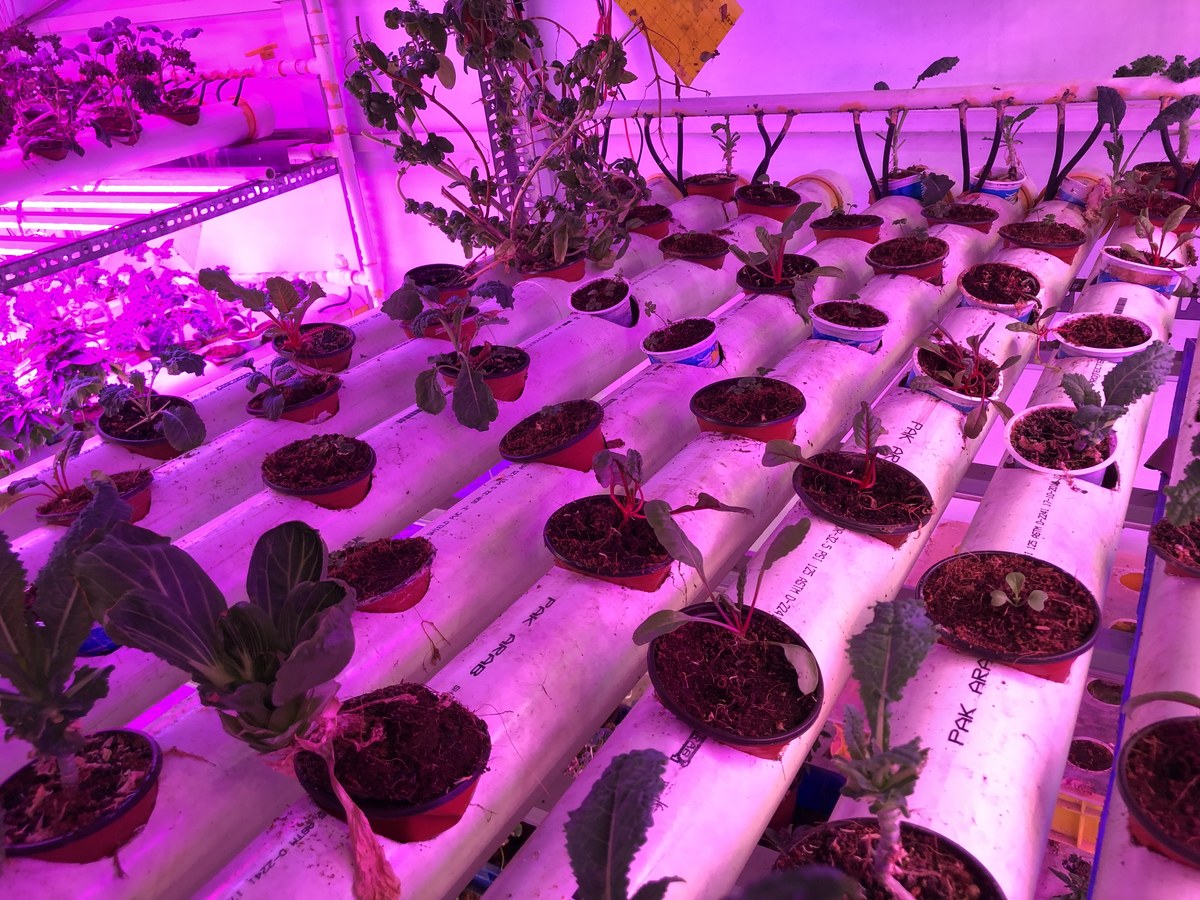
Different types of vegetables, mostly non-seasonal, are grown at this vertical farm at the Site Industrial Area of Karachi, where light, humidity and temperature is optimally controlled. September 26, 2019. (AN Photo)
ReplyReply to allForward
Farhan explained the nutrient solution traveled from a tank into PVC pipes which became inundated, and because the plants rested inside these pipes, when they were flooded, the roots took water up and the plant watered itself.
Dim LED lights are optimized for every plant, adjusted according to its own declared spectrum.
“In addition to that, we also artificially provide exactly what the plant needs in terms of carbon dioxide, humidity as well as temperature levels,” Farhan said.
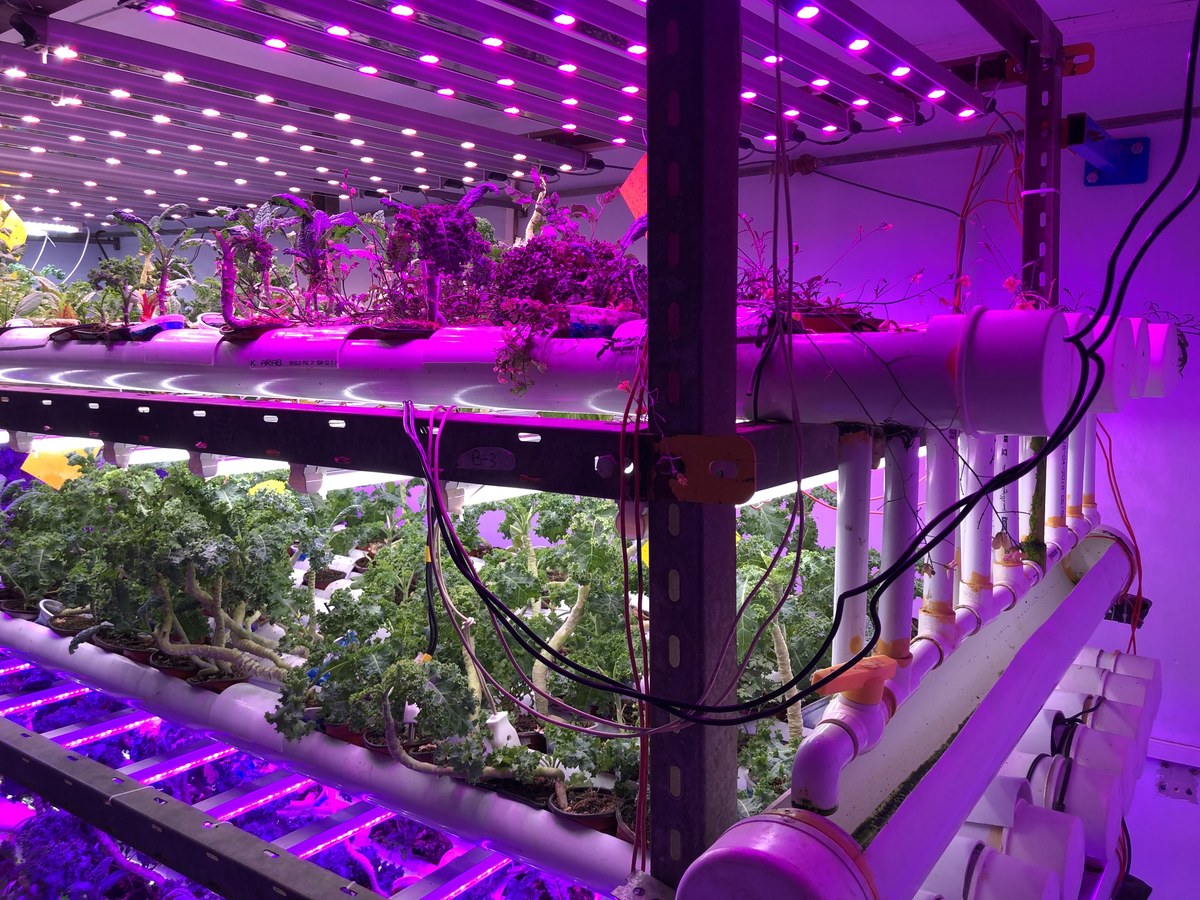
Different types of vegetables, mostly non-seasonal, are grown at this vertical farm at the Site Industrial Area of Karachi, where light, humidity and temperature is optimally controlled. September 26, 2019. (AN Photo)
ReplyReply to allForward
“We have 70 times more production per square meter as compared to field farming,” he said, and added that the elimination of pesticides and preservatives, meant the produce that came out of his vertical farm was “extremely healthy.”
Urban agriculture is largely immune to the restraints of climate conditions, which force most farmers in Pakistan to stay away from growing certain crops throughout the year and adding to the country’s import bill, Farhan said.
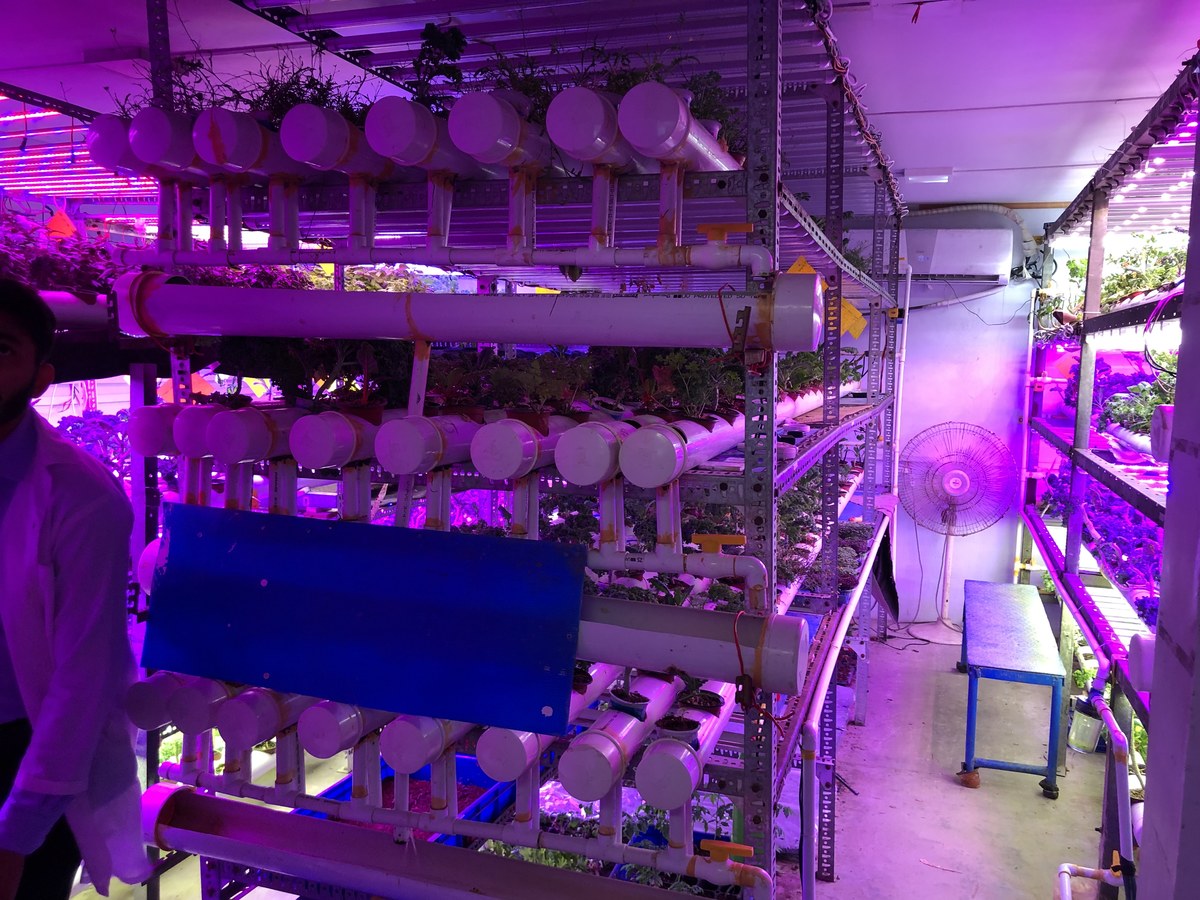
Different types of vegetables, mostly non-seasonal, are grown at this vertical farm at the Site Industrial Area of Karachi, where light, humidity and temperature is optimally controlled. September 26, 2019. (AN Photo)
ReplyReply to allForward
“Having setups like the vertical farm allow us to grow these vegetables within our own country throughout the year and then send it to the market,” he said, and added that if the model was successful on a large scale, Pakistan could start producing vegetables for export to international markets as well, especially to the Middle East.


